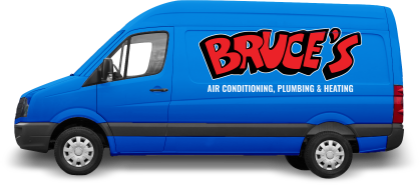Top 4 HVAC Tips to Survive the Arizona Summer Heat
August 11th, 2025With the extreme desert heat beating down, your HVAC system needs to operate at peak performance every day.
Serving the Chandler, AZ Area Since 1972
With the extreme desert heat beating down, your HVAC system needs to operate at peak performance every day.
Phoenix metro weather is notorious for hot temperatures that will likely continue into October. To ensure your air conditioning system keeps you cool and comfortable, you may want to get an understanding of the components that are most likely to fail. Top Breakdown Culprits Compressor: The heart of your AC system, the compressor, circulates refrigerant […]
The Arizona summer sun is a force to be reckoned with. When the heat intensifies, so does our reliance on our air conditioners. But what happens when your AC sputters out, leaving you facing a stifling hot home and a tripped circuit breaker? Here’s a breakdown of the top five reasons why your AC breaker […]
Summer in Arizona is no joke. With scorching temperatures soaring past 110 degrees, and the monsoon season bringing dust storms and powerful thunderstorms, your air conditioning unit works overtime to keep your home cool. Here’s how to avoid common AC problems and keep your home comfortable during the hottest months: Check and Replace Filters A […]
Ah, the Arizona monsoon. A striking shift from scorching heat to sudden downpours, dust storms, and dramatic skies. While these storms offer a welcome respite from the relentless sun, they can wreak havoc on your home’s air conditioning unit. Here’s how Arizona’s summer monsoons can cause a sudden AC failure and leave you sweltering. 1. […]
If you live in Arizona, you know that Independence Day falls right in the middle of the hottest time of the year. With temperatures regularly soaring above triple digits during the day, it can be a challenge to keep your home comfortable without sending your energy bills through the roof. However, with some simple tips […]
With the first day of official summer not too far off, keeping your home pleasant and cool will be a top priority. The summer solstice is the longest day of the year and starts on June 20,2024. By implementing some strategic tactics, you can transform your home into a cool haven even during the hottest […]
Arizona summers are full of blazing sunshine, poolside lounging, and the sweet relief of cranking up the AC. But what if your air conditioner’s cool breeze is accompanied by an unwelcome odor? Certain smells can signal trouble brewing in your AC unit. Here’s a guide to Arizona AC odors that warrant turning off your system […]
When it comes to surviving scorching summer temperatures in Arizona, your HVAC system is probably running on overdrive to keep your home comfortable. But did you know that you could be reducing the workload on your air conditioner while trimming energy costs just by utilizing ceiling fans throughout your living spaces? Fans offer an economical […]

Do we serve your neighborhood?